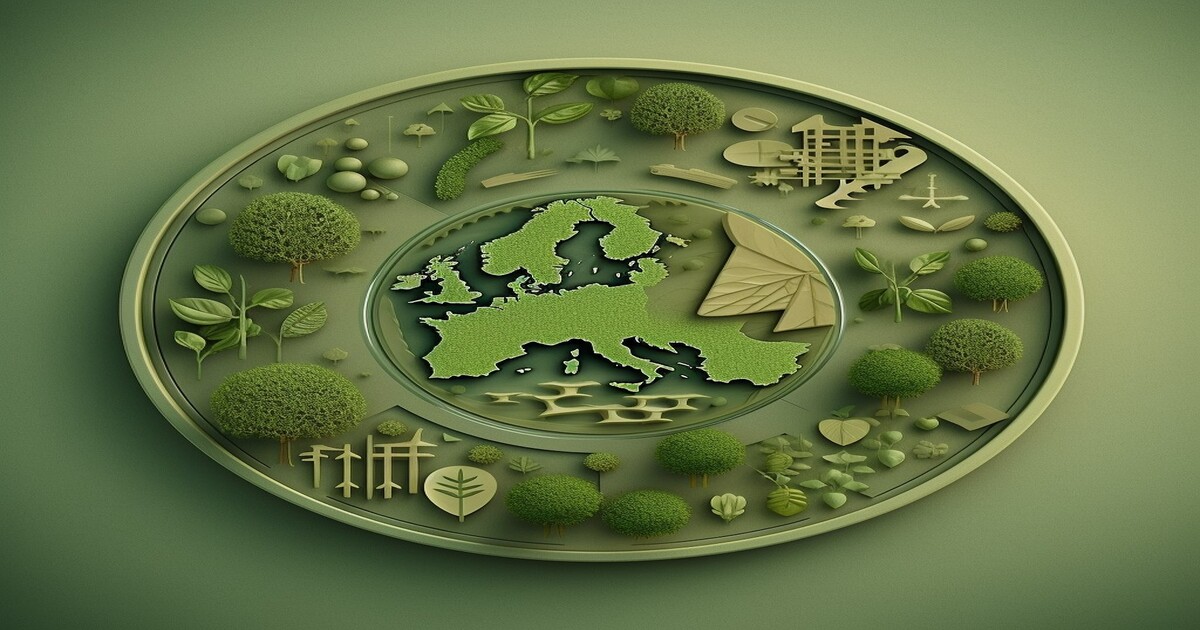The Economic and Environmental Pillars of Sustainable Development in the European Union
A special issue of Sustainability (ISSN 2071-1050). This special issue belongs to the section "Environmental Sustainability and Applications".
Deadline for manuscript submissions: closed (31 March 2024) | Viewed by 615

Image courtesy of Nikolaos Antonakakis
Special Issue Editors
Interests: applied time series econometrics; international finance; international macroeconomics; European integration; health economics; energy economics; tourism economics
Special Issues, Collections and Topics in MDPI journals
Interests: political representation and parliamentarism in the European union; integration of political theory and European integration studies; European energy policy and foreign affairs
Interests: geopolitical energy policy and security in Europe; interplay of international political economy and international relations in energy security; EU–Russia relations in the context of energy; resource curse and political-developmental effects; Arctic strategic developments and energy security; modern terrorism as asymmetric warfare
Special Issue Information
Dear Colleagues,
We are delighted to introduce this Special Issue, designed to explore the vibrant intersection of economic growth and environmental protection, as framed by the European Union's sustainable development agenda. This realm of investigation is increasingly critical as our global society grapples with the multidimensional challenges presented by climate change, economic instability, and social inequity.
Notably, the European Union has emerged as a global leader in initiating and implementing effective, comprehensive strategies that address these intricate issues in a cohesive manner. The EU's innovative approaches serve as a valuable blueprint for other regions worldwide, inspiring and influencing policy-making to create a more sustainable future. This Special Issue aims to illuminate the myriad complexities and nuances of balancing economic growth with environmental preservation, two aspects that are innately intertwined yet traditionally viewed as separate or even conflicting arenas.
This collection of papers promises to dive deep into this topic, providing robust analysis and pioneering methodologies that have the potential to significantly influence the course of sustainable development within the European Union. It is a unique opportunity to showcase the wealth of work being carried out in this vital field and encourage further research and discourse.
The theme of this Special Issue transcends traditional disciplinary boundaries, incorporating perspectives from environmental economics, public policy, social sciences, and more. Keywords such as sustainable development, European Union, economic growth, environmental protection, climate change, social equity, policy analysis, environmental economics, resource management, and green growth not only define our focus but represent the broad and interconnected scope of these investigations.
The insights garnered from these papers will not only deepen our understanding of the economic and environmental paradigms at play within the European Union but will also contribute to broader discussions of global sustainable development. They may provide the tools and strategies to reconcile economic growth with environmental protection, fueling both theoretical discussions and practical applications.
In essence, the aim is to uncover the potential pathways to transform the often-perceived dichotomy between economic development and environmental protection into a dynamic, symbiotic relationship. This Special Issue offers an opportunity to engage with cutting-edge research that will inform policy-making, influence business practices, and stimulate public awareness about the pressing need for a paradigm shift towards sustainability.
We hope that the studies presented will catalyze an ongoing conversation about the most effective ways to build a resilient, sustainable future that simultaneously addresses economic prosperity, environmental stewardship, and social equity. We look forward to the stimulating exchange of ideas this Special Issue will undoubtedly spark, thereby contributing to the global discourse and progress on sustainable development.
With sincere enthusiasm for the upcoming exchange of ideas and discourse, we extend an invitation to delve into this Special Issue, confident that it will enhance our collective understanding of these pivotal issues and inspire further action towards a sustainable future.
Dr. Nikolaos Antonakakis
Prof. Dr. Johannes Pollak
Dr. Samuel R. Schubert
Guest Editors
Manuscript Submission Information
Manuscripts should be submitted online at www.mdpi.com by registering and logging in to this website. Once you are registered, click here to go to the submission form. Manuscripts can be submitted until the deadline. All submissions that pass pre-check are peer-reviewed. Accepted papers will be published continuously in the journal (as soon as accepted) and will be listed together on the special issue website. Research articles, review articles as well as short communications are invited. For planned papers, a title and short abstract (about 100 words) can be sent to the Editorial Office for announcement on this website.
Submitted manuscripts should not have been published previously, nor be under consideration for publication elsewhere (except conference proceedings papers). All manuscripts are thoroughly refereed through a single-blind peer-review process. A guide for authors and other relevant information for submission of manuscripts is available on the Instructions for Authors page. Sustainability is an international peer-reviewed open access semimonthly journal published by MDPI.
Please visit the Instructions for Authors page before submitting a manuscript. The Article Processing Charge (APC) for publication in this open access journal is 2400 CHF (Swiss Francs). Submitted papers should be well formatted and use good English. Authors may use MDPI's English editing service prior to publication or during author revisions.
Keywords
- sustainable development
- European Union
- economic growth
- environmental protection
- climate change
- social equity
- policy analysis
- environmental economics
- resource management
- green growth
Benefits of Publishing in a Special Issue
- Ease of navigation: Grouping papers by topic helps scholars navigate broad scope journals more efficiently.
- Greater discoverability: Special Issues support the reach and impact of scientific research. Articles in Special Issues are more discoverable and cited more frequently.
- Expansion of research network: Special Issues facilitate connections among authors, fostering scientific collaborations.
- External promotion: Articles in Special Issues are often promoted through the journal's social media, increasing their visibility.
- e-Book format: Special Issues with more than 10 articles can be published as dedicated e-books, ensuring wide and rapid dissemination.
Further information on MDPI's Special Issue polices can be found here.







